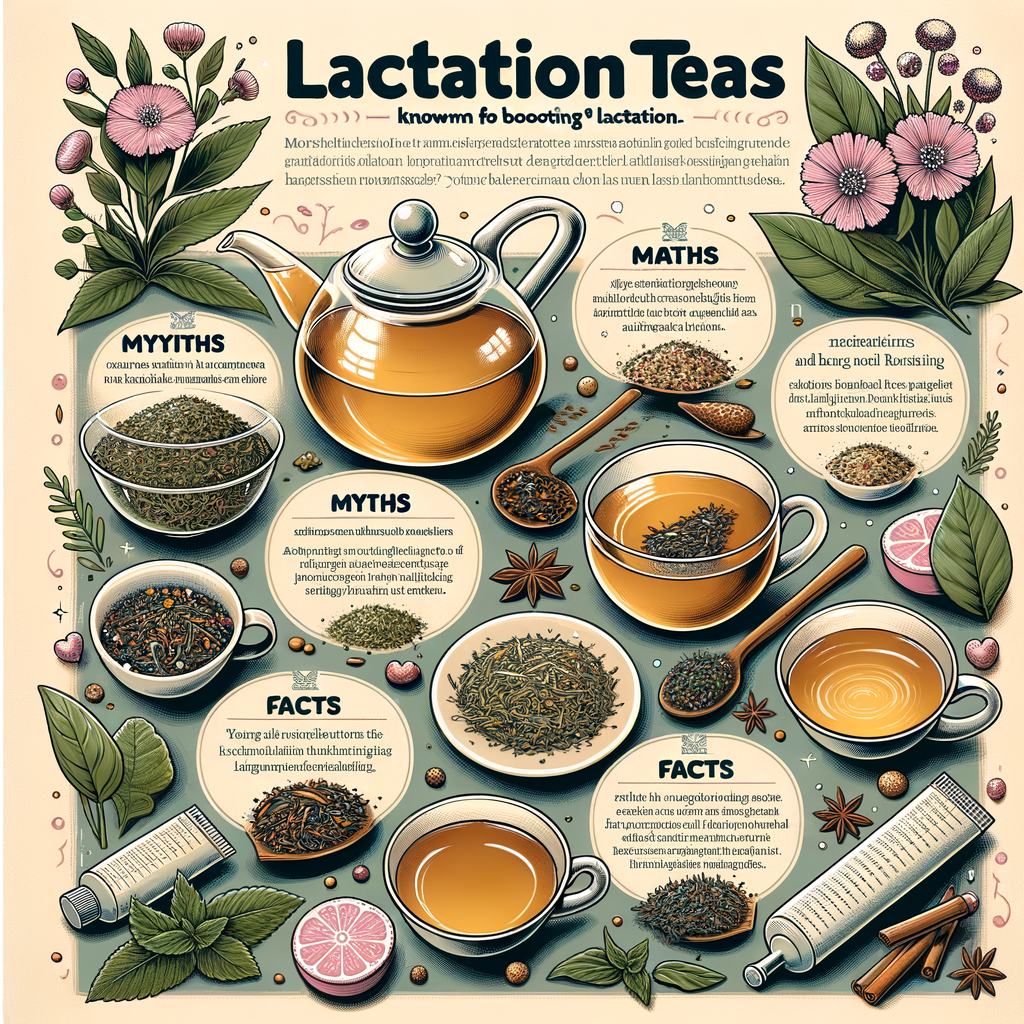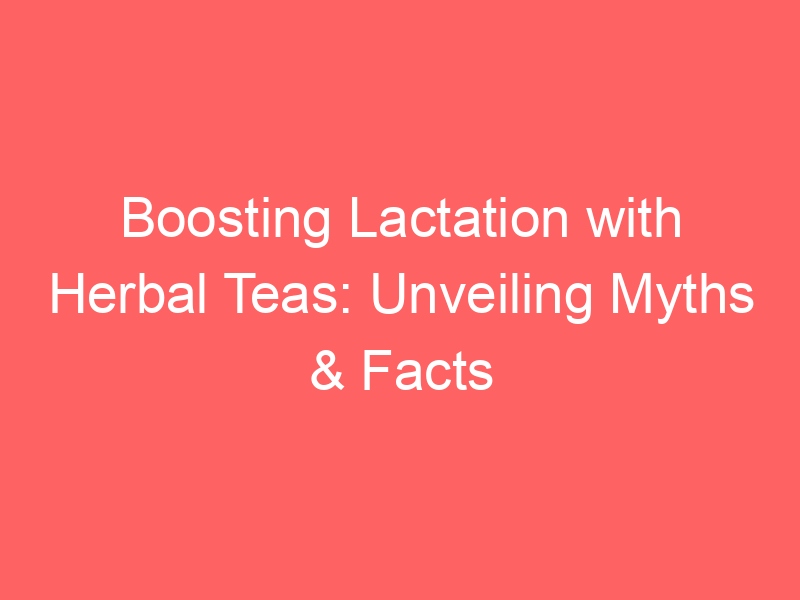Introduction: Herbal Teas for Lactation
When it comes to nourishing a newborn, mother’s milk is considered the best source of nutrition. However, not all mothers can produce enough milk to meet their baby’s needs. This is where the concept of lactation enhancement comes into play. In this blog post, we will explore how herbal teas can help boost lactation.
-
- Understanding the concept of lactation enhancement
Lactation enhancement refers to the process of increasing the production of breast milk in nursing mothers. It is a common concern among many new mothers who worry about providing enough nutrition for their babies. There are various methods to enhance lactation, ranging from medical interventions to natural remedies. One such natural remedy that has been used for centuries is herbal tea.
-
- The role of herbal teas in boosting lactation
Herbal teas have been used by women for generations to increase milk supply. They contain certain herbs known as galactagogues, which are believed to stimulate milk production. Some popular herbal teas for lactation include fenugreek, fennel, and blessed thistle.
For instance, a fenugreek tea is widely recognized for its lactation-enhancing properties. It is rich in phytoestrogens, which are plant compounds that mimic the hormone estrogen in the body. This hormone plays a key role in milk production.
Similarly, fennel tea is another popular choice among nursing mothers. It not only helps increase milk supply but also aids in digestion, making it beneficial for both mother and baby.
While these teas can be beneficial, it’s important to note that results may vary from person to person. Always consult with a healthcare provider before starting any new dietary regimen, especially while breastfeeding.
Myths about Lactation Teas
There are many myths surrounding lactation teas. One of the most common is that all herbal teas are safe for breastfeeding. Let’s explore this myth and uncover the truth.
Myth 1: All Herbal Teas are Safe for Breastfeeding
- Exploring the truth behind this myth: Not all herbal teas are safe for breastfeeding. Some herbs can negatively affect milk production or even harm the baby.
- Case study: Negative effects of certain herbal teas on lactation: A study published in the Journal of Human Lactation found that some herbal teas, like sage and peppermint, can decrease milk supply.
- Debunking the myth: It’s crucial to understand that while some herbal teas can enhance lactation, others can hinder it. Always consult with a healthcare provider before incorporating any new herbs into your diet while breastfeeding.
- Understanding the gradual process of lactation enhancement: Increasing milk supply is a gradual process that involves a combination of factors, including proper nutrition, hydration, and frequent breastfeeding or pumping.
- Identifying the beneficial herbal teas for lactation: Some herbal teas, like fenugreek and fennel, have been shown to boost milk supply.
- Scientific evidence supporting the benefits of these teas: Numerous studies have shown the positive effects of certain herbal teas on lactation, including a study published in the Journal of Alternative and Complementary Medicine.
- Understanding the importance of correct dosage and frequency: Overconsumption of herbal teas can lead to side effects. It’s important to follow the recommended dosage and frequency.
- Example: The impact of overconsumption on lactation and overall health: Overconsumption of fenugreek, for example, can lead to diarrhea and low blood sugar.
- Exploring other natural methods for boosting lactation: Other natural methods for boosting lactation include staying hydrated, eating a balanced diet, and breastfeeding or pumping frequently.
- Comparing the effectiveness of herbal teas with other natural remedies: While herbal teas can be beneficial, they should be used as a supplement to, not a replacement for, other lactation-boosting methods.
- Reviewing the top herbal teas for lactation: Some of the top herbal teas for lactation include fenugreek, fennel, and blessed thistle.
- Key takeaways: Choosing the right breastfeeding tea: Choose a tea that is safe for breastfeeding and has been shown to boost milk supply. Always consult with a healthcare provider before starting any new supplement.
- Step-by-step guide to preparing effective lactation teas: To prepare a lactation tea, steep the herbs in hot water for 10-15 minutes, then strain and drink. You can drink 2-3 cups per day, unless otherwise advised by your healthcare provider.
- Tips for optimal consumption and results: Drink the tea consistently, but don’t overdo it. Remember that increasing milk supply is a gradual process.
- Understanding the benefits of herbal teas for lactation: Herbal teas can provide a natural way to boost milk supply, but they should be used in conjunction with other lactation-boosting methods.
- Precautions to take when using herbal lactation support: Always consult with a healthcare provider before starting any new supplement, and stop use if you experience any adverse effects.
- Recap of the myths and facts about lactation teas: While some herbal teas can boost milk supply, not all are safe for breastfeeding. Always do your research and consult with a healthcare provider.
- Final thoughts on the role of herbal teas in boosting lactation: Herbal teas can be a beneficial supplement for breastfeeding mothers, but they should be used wisely and in moderation.














